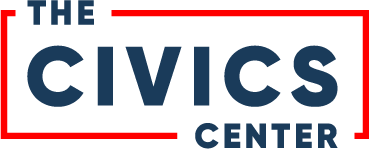Teaching with stories
“I don’t like politics, and I’m not going to vote.”
It was October of this year. I was spending countless hours focused on youth voter registration and turnout.
So a lot of things went through my mind when I heard a report about a young high school teacher who, in the weeks before Election Day, told her students, that she didn’t like politics, and she wasn’t going to vote.
I felt angry at the teacher. Was she actively trying to discourage her students from voting?
I felt angry at the school. Was no one in the administration making sure that teachers and students know how voting connects with their lives and why voting is important? Shouldn’t schools have a policy of encouraging students to register and preregister to vote and to participate as soon as they are able? Shouldn’t schools have a policy of wanting their students to grow up capable of understanding what’s at stake in elections? Shouldn’t they be seeking to cultivate an engagement in civic life?
But this teacher is not alone. I remembered a young woman I had approached a few months earlier, during a voter registration drive in Huntington Beach, California. She looked up at me blankly when I asked if she was registered to vote.
When I didn’t go away, she asked, with no apparent interest whatsoever, “vote for what?”
Getting past the anger, I began to wonder. What does it mean when someone says they don’t like politics? Does it mean they don’t like democracy itself? I doubt it.
Does it mean they don’t have a full grasp of the different roles of elected officials and the real-world impact of their policy decisions? Maybe.
Does it mean they don’t like special interests having so much influence? Does it mean they don’t like negative campaign ads or being badgered by fundraising emails? Does it mean they don’t like the polarization, incivility and negativity of our current political culture? Who can blame them?
Let’s assume we are not going to be able to fix the problems of incivility, polarization, and excessive influence of money, immediately.
So how do we engage this teacher who has given up on voting and others who might give up? What is the first step?
The short answer is: I don’t know. Probably not with public namecalling on Twitter. Probably not with a 3-hour lecture on campaign finance reform.
Maybe with the next major election two years away it is possible to try a different approach and to see if we can reach people who have been turned off by electoral politics.
If I could try one thing, I would start with stories. Stories can help people develop connection and common understanding. Stories can help groups of people develop the determination to fix a problem. A great story can illustrate that lurking in the background of many fundamental human problems lies a policy decision that can make things better or worse. And the decision to turn away or not isn’t just an abstract judgment about politics. It has consequences for the people at the heart of the stories and for all of us.
With that background, we now present:
The Civics Center Year-End Story List
HIGHER EDUCATION
Malcolm Gladwell, Revisionist History
This is a three-part series in a longer series of podcasts about things that are often overlooked or misunderstood. All three of these episodes focus on obstacles to equal opportunity in higher education for kids from low-income families. Opinionated. Emotional. Super interesting.
Carlos Doesn’t Remember
Why don’t more smart kids from low-income families go to elite universities?
Food Fight
Should colleges invest in great food and amenities or financial aid? And what impact does the answer have on opportunities for low-income students?
My Little Hundred Million
Educational philanthropy involves many moral questions. Should we be paying attention to the weak links or the strong links?
HIGH SCHOOL AND TEACHERS
This American Life
Three Miles
This episode focuses on a program that brings together kids from two schools.
One school is public and in the country’s poorest congressional district. The
other is private and costs $43,000/year. The idea is to build connections. Hear about what really happens.
Malcolm Gladwell, Revisionist History
Miss Buchanan’s Period of Adjustment
What happened to African-American teachers in the wake of Brown v. Board of Education and what are the impacts today?
Education Matters
Education Matters is a policy podcast focused on teaching in North Carolina. It covers an amazing array of questions about how policy decisions affect the teaching profession and the next generation. Every state should have one of these, but anyone interested in education policy issues would be interested.
EXTREMISM AND RESPONSES TO EXTREMISM
Krista Tippett, On Being
Interview with Derek Black and Matthew Stevenson
Learn how friendship and quiet conversations transformed a white nationalist.
The New Yorker (not a podcast, sorry)
Unfollow, by Adrian Chen
Learn how a prominent daughter of the Westboro Baptist Church came to question its
beliefs.
Ted Talks
If you prefer video, there are six Ted Talks on extremism, all from different voices and addressing different approaches.
HEALTH CARE
The Impact
Sit in a circle. Talk to other pregnant women. Save your baby’s life?
South Carolina is trying a simple -- and effective -- way to promote infant health.
This list is not meant to be comprehensive. It is just one place to start.
We want to hear from you. Did you listen to these stories and still respond to voting with a shrug? If you are a teacher, we would love to hear about how you might incorporate these stories in your teaching to help students connect policy issues with real world problems. Did the stories give you a spark and make you think of other stories we should know about? Please write to us at info@thecivicscenter.org. We'd love to hear from you.
